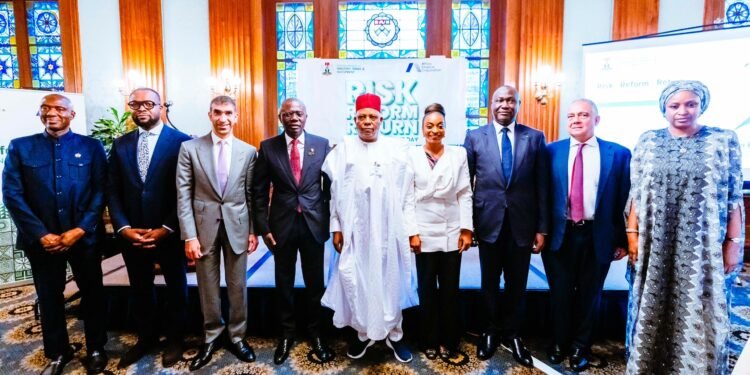• says country positioned as natural hub for AfCFTA’s $3.4trn market
At the 80th Session of the United Nations General Assembly (UNGA) in New York on September 22, 2025, Vice President Kashim Shettima passionately showcased Nigeria’s $200 billion energy transition opportunity, urging global investors to seize the vast multi-faceted prospects available across the nation.
Representing President Bola Tinubu, the Vice President highlighted how Nigeria is strategically positioned to become the natural hub for the African Continental Free Trade Area’s (AfCFTA) $3.4 trillion market.
According to a statement issued by his media aide, speaking at a Business Council for International Understanding (BCIU) Roundtable themed “Risk, Reform, Return,” Shettima emphasised the interconnectedness of today’s global economy and Nigeria’s rising potential.
“The wealth of any nation is neither achieved through miracles nor inherited,” he declared, underscoring Nigeria’s stature as West Africa’s largest economy and Africa’s biggest consumer market, currently with a population of 236 million projected to swell to 320 million by 2040.
Shettima painted a compelling picture of Nigeria’s demographic dividend, with a median age of about 17 and over 58 percent of the population under 30, qualifying as one of the deepest talent pools globally.
“When you add to this our geographic position as a natural hub for trade between Africa, the Americas, and Asia; our 44 distinct natural resources; our five tech unicorns; the largest oil reserves in Africa; and 210 trillion cubic feet of proven gas reserves, you see that Naija no dey carry last,” he declared to the international audience.
The Vice President detailed the bold reforms initiated since mid-2023 under President Tinubu’s Renewed Hope Agenda, including unifying Nigeria’s exchange rates, eliminating long-standing fuel subsidies that distorted the economy, modernizing tax and customs systems, enhancing fiscal oversight, and overhauling trade and investment policies.
“This reset includes full implementation of the AfCFTA, the roll-out of a National Single Window for trade, a new Investment and Securities Act, an upgraded PPP framework, and modernized bilateral investment treaties,” Shettima said.
According to Shettima, the economic reforms are already yielding results with accelerating GDP growth, stronger external reserves, moderating inflation, and rebounding investor commitments.
He pointed to the April 2025 sovereign rating upgrades by Fitch and Moody’s—Fitch lifting Nigeria’s rating to B with a stable outlook, and Moody’s raising its issuer rating to B3, also stable—as recognition of improved buffers and clearer policy direction. “This positions Nigeria as the natural hub for the AfCFTA’s $3.4 trillion market,” he stated.







